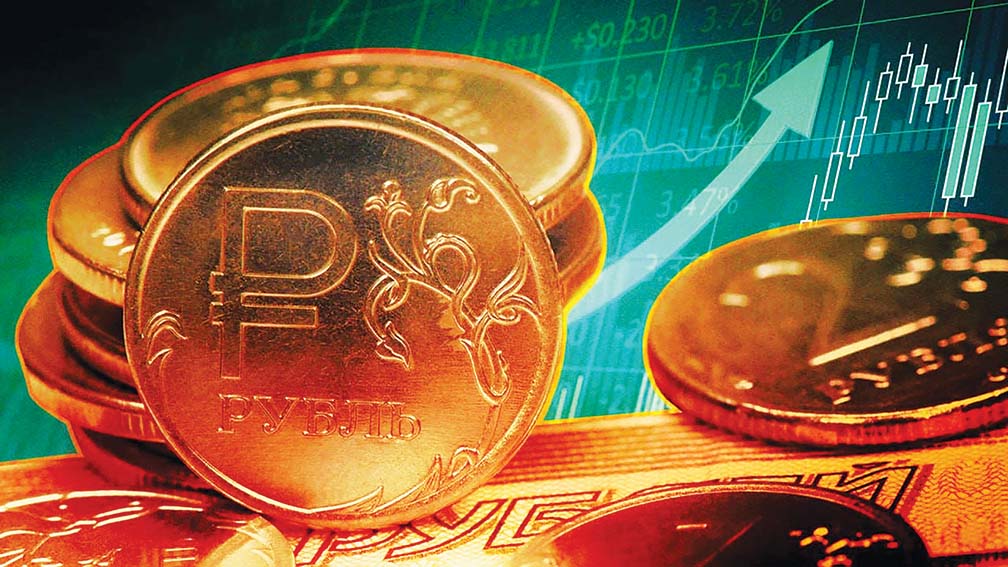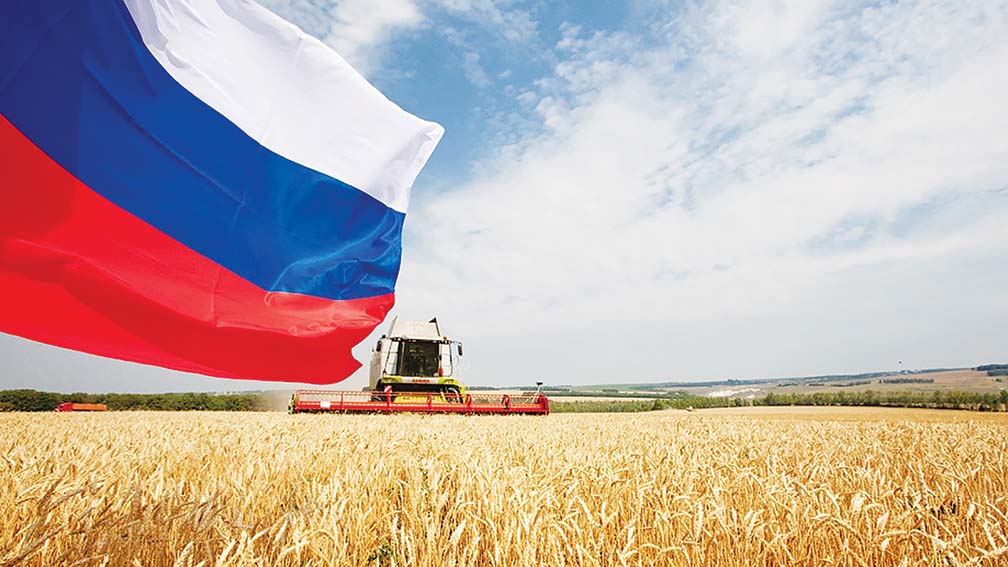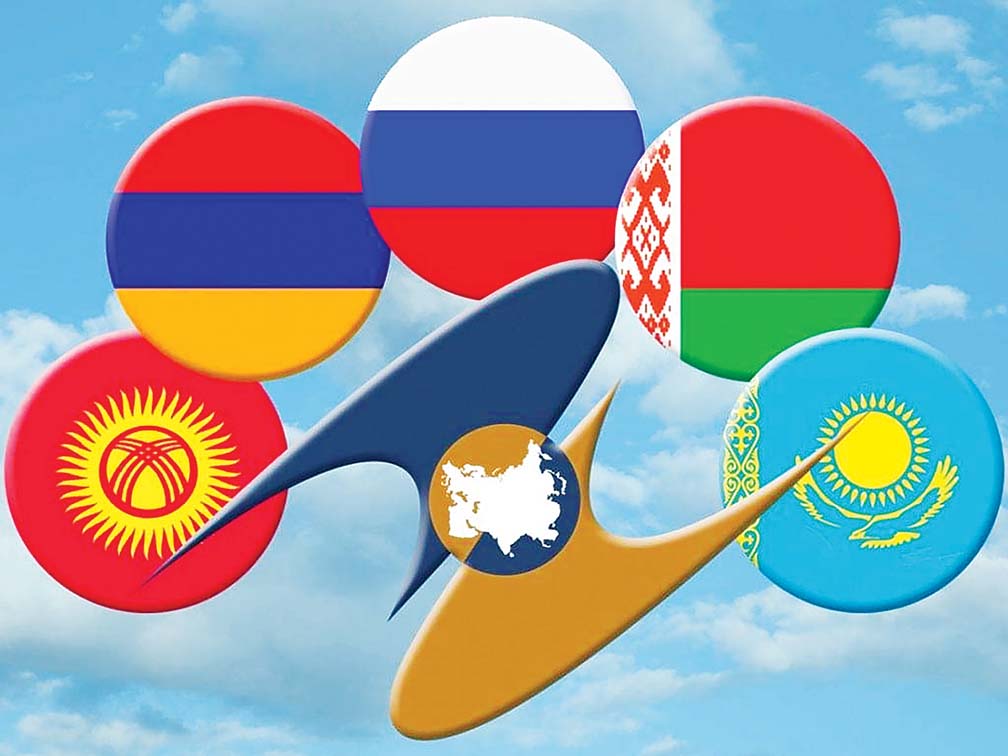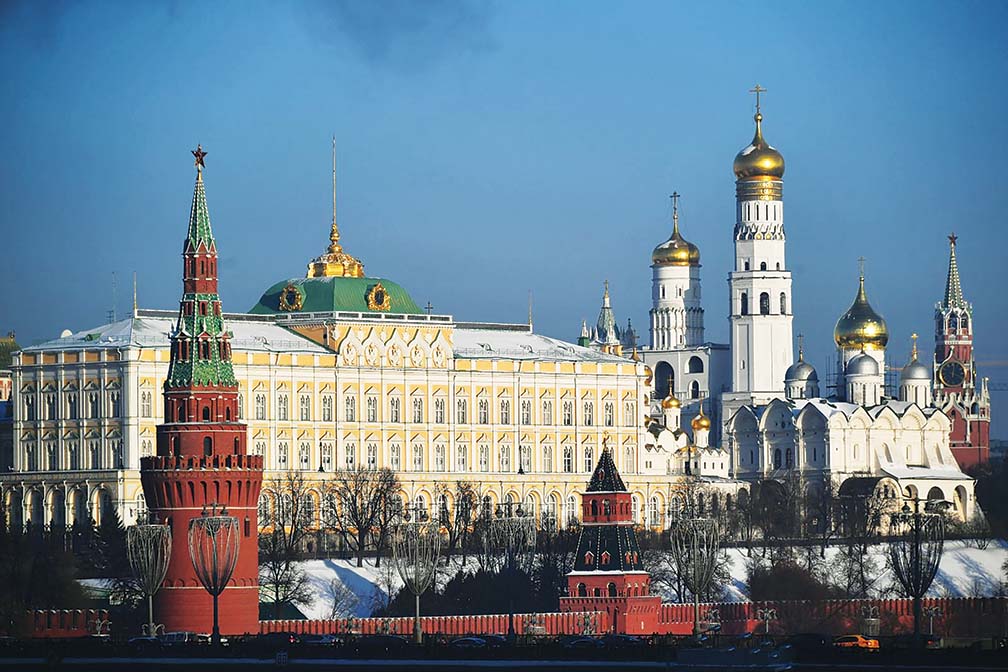For many years now, we have seen the futile attempts of the West to isolate Russia. Western countries—primarily the United States (US), Great Britain, and the members of the North Atlantic Treaty Organization (NATO)—are trying to portray themselves on the right side of history, while the rest of the world according to them is on the side of the forces of evil. With the start of Russia’s special operation to protect Donbass, the aggressive sanctions policy of Western countries has only intensified.

Russia historically had been viewed by the West not as an equal partner, but as a competitor and rival. This manifested itself most prominently after the end of the Cold War, when the “collective West,” taking advantage of its then sole leadership, began to build a unipolar world for itself. Russia, then weak and unable to resist, nevertheless immediately rejected this concept.
And now, it so happens that our country is again going through a pivotal phase in its more than thousand-year history. We are forced to deal with aggressive reactions from a number of external players to the absolutely justified actions to protect our vital interests west of Russia.
MAN-MADE CRISIS
A man-made crisis in European security and in the entire international order that took shape in the wake of World War II has arisen. But behind it is the fact that Western civilization has no more opportunities left to compete—in economic, scientific and technical terms, and in terms of industry. The sanctions policy and the creation of zones of instability are all that is left in their arsenal to curb the development of competitors. But will it help? The Union of Soviet Socialist Republics (USSR) was under sanctions for 70 years but remained one of the great powers. Russia has also been staying under sanctions since 2014 but its economy has showed good resilience.
Western countries still strive to preserve yesterday’s world order that benefits them and force everyone to live according to the infamous “rules,” which they concocted themselves. They are also the ones who regularly violate these rules, changing them to suit their agenda depending on how things are going at any given moment.
At the same time, other countries have not been forthcoming when it comes to subjecting themselves to this dictate and arbitrary rule, forcing the Western elites, to put it bluntly, to lose their grip and take short-sighted, irrational decisions on global security, politics, as well as economics. All these decisions run counter to the interests of countries and their people, including, by the way, the people in those Western countries.
Europe is about to throw its manufacturing capability, the quality of life of its people and socioeconomic stability into the sanctions furnace, depleting its potential, as directed by Washington, for the sake of the infamous Euro-Atlantic unity. In fact, this amounts to sacrifices in the name of preserving the dominance of the US in global affairs.
When the special military operation to demilitarize and de-nazify Ukraine started last February, many foreign corporations rushed to announce their withdrawal from Russia, believing that our country will suffer more than others.
Today, we see one manufacturing site after another shutting down in Europe itself. One of the key reasons, of course, lies in the severed business ties with Russia.
COMPETITIVE DECLINE
The competitive ability of European companies is in decline, for the European Union (EU) officials themselves are essentially cutting them off from affordable commodities and energy, as well as trade markets.
It will come as no surprise if eventually the niches currently occupied by European businesses, both on the continent and on the global market in general, will be taken over by their American patrons who know no boundaries or hesitation when it comes to pursuing their interests and achieving their goals.
At the same time, Russia is handling well the economic, financial and technological aggression.
The foreign exchange and financial markets of Russia have stabilized, the unemployment rate is at a historical low—less than 4%, inflation—at the level of 14% with a clear downward trend, in contrast to Western economies. For example, the inflation in the US has reached 8.5%, Germany (7.9%), Belgium (9.9%), the Netherlands (12%), Latvia (20.8%), Lithuania (21.1%), and Estonia (25.2%). And it is still on the rise.
The exchange rate of the national currency, the ruble, is also strengthening. This year it demonstrates, probably, the best dynamics among all the currencies of the world.
FOOD SHORTAGE
Rising prices in the global markets can be a real tragedy for most of the poorest countries, which are facing shortages of food, energy, and other vital goods. While in 2019, according to the United Nations (UN), 135 million people in the world were facing acute food insecurity, their number has soared by 2.5 times to 345 million at present. Moreover, the poorest states have completely lost access to the most essential foods as developed countries are buying up the entire supply, causing a sharp increase in prices.
A case in point is the export of Ukrainian grain at all costs to support the poorest countries. It has recently become the main topic of the international agenda. Russia, despite all the difficulties of the events taking place around Ukraine, did everything possible to ensure that Ukrainian grain was exported, primarily to the poorest countries. A corresponding agreement was signed with the mediation of Turkey.
However, according to the results of its implementation, out of 87 ships that left Ukrainian ports with grain, 32 remained in Turkey as the intermediary country, three were sent to South Africa, three to Israel, seven to Egypt, 30 to the EU, and only two to the poorest countries (Yemen and Djibouti) under the UN food programs. This amounts to only 60 thousand tons of food out of the two million (3%) that were sent to developing countries. This shows clearly that many European countries today continue to act as colonizers, exactly as they have been doing in previous decades and centuries. Developing countries have simply been cheated yet again and continue to be cheated.
RISING GAS PRICES
The manipulation of gas prices by the EU, aimed at causing harm to Russia, also did not lead to anything good, especially for the European countries themselves. What is happening in European markets now is the result of the work of European experts and the European Commission.
Russia has always insisted that gas prices be formed on the basis of long-term contracts and be tied to such a market category as prices for oil and oil products because its production requires large investments, and those who invest in production must be sure that the product will be sold. However, European buyers considered this proposal unprofitable, believing that the price of $100 per thousand cubic meters of gas is very high, and spoke of the need to focus on the spot market. Well, now they are facing the consequences of their decision—the gas price has exceeded 3,000 euros per one thousand cubic meters.
Against this backdrop, Europe is considering the possibility of capping energy prices of Russian fuels. However, this will only lead to a further rise in prices on world markets, including in Europe. Russia, in turn, will focus solely on its contractual obligations, ignoring political decisions, especially if it contradicts its economic interests.
Russia is accused of energy blackmail. However, this is absurd. Russia delivers as much as the partners have ordered. Russia has not ceased gas exports to Europe. The difficulties with gas supply are due to the actions of the EU itself.
Poland has terminated a contract with Gazprom, and a Siemens gas turbine for Nord Stream 1 cannot be returned to Russia because necessary documents are absent. Moreover, Ukraine has voluntarily closed access to one of the pipelines. Our country is ready to put Nord Stream 2 into operation. All we need to do is press the button, but we are not the ones who imposed sanctions on Nord Stream 2. It was done under pressure from the United States. Why is it exerting pressure? Because it wants to sell its gas for a pretty penny.

THE FUTURE: NEW FORMATIONS
Despite numerous intrigues from ill-wishers Russia looks to the future with optimism. Our country has many friends. About 80% of countries around the world did not join Western sanctions, including the Philippines, despite open pressure, blackmail, threats, including personal threats against certain politicians.
Russia continues to actively cooperate at the UN and in its Group of Friends in Defence of the Charter of the UN. The number of its members is increasing, having reached 20. We are working within the frameworks of the institutions established on the territory of the former Soviet Union— the Collective Security Treaty Organization, the Eurasian Economic Union and the Commonwealth of Independent States—and, in the Eurasian context, in the Shanghai Cooperation Organization (SCO), a new promising association; globally, it is BRICS, which, like the SCO, is attracting an increasing number of countries seeking partner or observer status. Requests for full membership in these institutions have become more frequent.

New arguments are emerging in favor of making President Vladimir Putin’s initiative to create Greater Eurasian Partnership Russia’s flagship foreign policy project. Greater Eurasian Partnership is seen as a framework format open to all countries and associations on the continent to address the issues of economic integration and security. The project’s added value is in the balanced synergism of integration projects, national development strategies, industrial and logistics chains, and transport and energy corridors.
The future belongs to these new associations and to the work in these and other formats designed to overcome the discriminatory approaches the West is taking in the context of the financial and economic architecture. An ever-increasing number of countries are taking practical measures to reduce their dependence on the international monetary and financial system, which the West has built and brought under its control, and are seeking to reduce their dependence on the dollar, western technology, and logistics chains controlled by the West.
These countries are creating their own mechanisms that will not be subjected to any type of dictate or misuse. They do not want democracy to be just an empty word or a tool used by the West as a slogan to interfere in the internal affairs of sovereign countries, imposing its own perspective on how a particular nation should organize its life. More countries are craving for democracy on the international arena where all are equal and have respect for one another.


